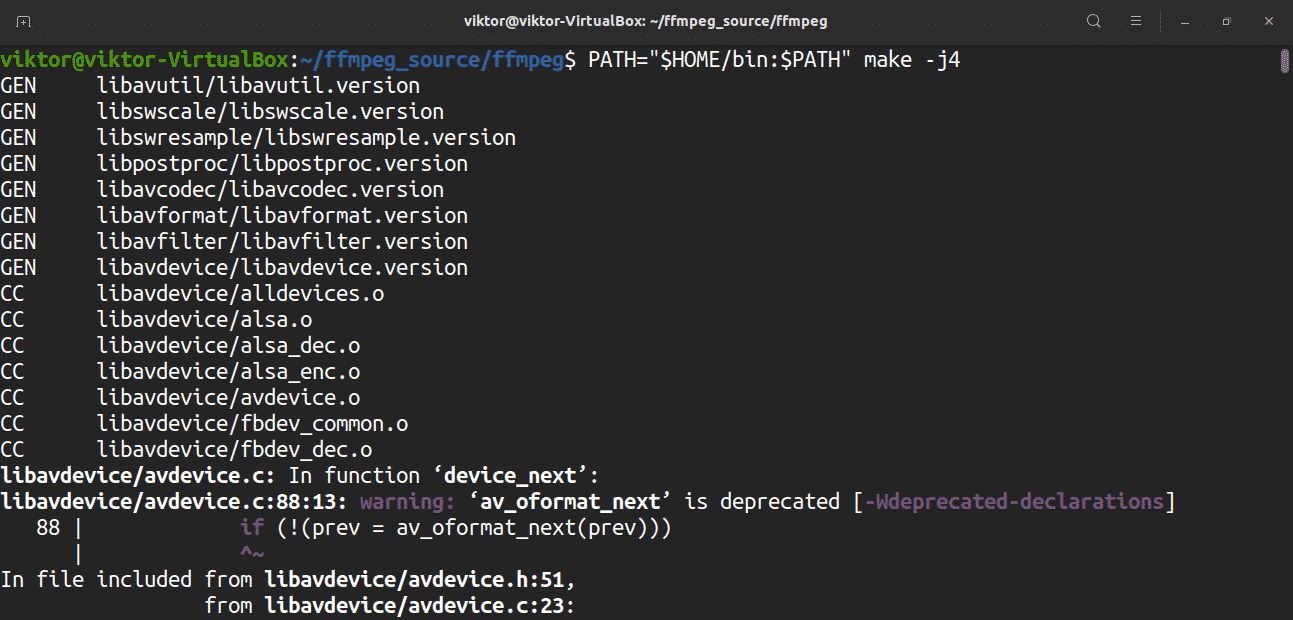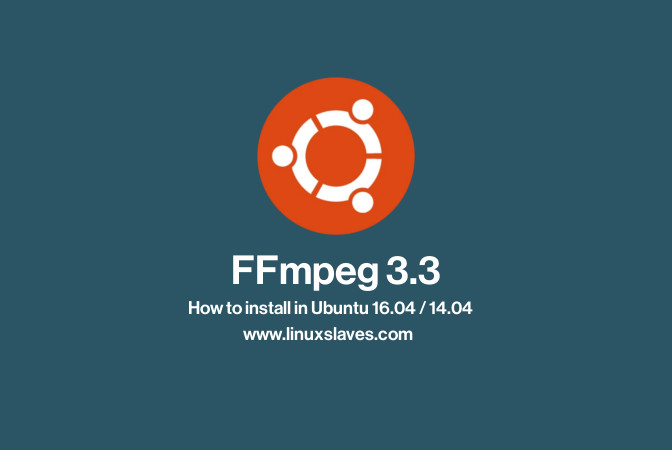

- #Ubuntu ffmpeg command not found how to
- #Ubuntu ffmpeg command not found mp4
- #Ubuntu ffmpeg command not found install
- #Ubuntu ffmpeg command not found update
ffmpeg-install: line 76: aria2c: command not found ffmpeg-install: line 68: axel: command not found List the contents to view the downloaded file. Ownload the FFMPEG using the wget command. This tutorial covers the video On Installation of FFMPEG 4.1.3 on Ubuntu 19.04 Download Link:Ĭlick here, to download the ffmpeg version 4.1.3 If you hit a problem or have feedback, leave a comment below.Installation Of FFMPEG 4.1.3 on Ubuntu 19.04įFMPEG is a free and open-source project consisting of a vast software suite of libraries and programs for handling video, audio, and other multimedia files and streams.FFmpeg is a video editing software that can be used to convert audio and video streams in Linux.
#Ubuntu ffmpeg command not found how to
Page and learn how to use FFmpeg to convert and your video and audio files. You can now visit the official FFmpeg Documentation
#Ubuntu ffmpeg command not found install
We have shown you how to install FFmpeg on Ubuntu 20.04.

ffmpeg -i input.mp3 -c:a libopus output.ogg
#Ubuntu ffmpeg command not found mp4
It can be a name of any supported decoder/encoder or a special value copy that simply copies the input stream.Ĭonvert a video file from mp4 to webm using the libvpx video codec and libvorbis audio codec: ffmpeg -i input.mp4 -c:v libvpx -c:a libvorbis output.webmĬonvert an audio file from mp3 to ogg encoded with the libopus codec.

When converting files, use the -c option to specify the codecs. The input file format is auto-detected, and the output format is guessed from the file extension.Ĭonvert a video file from mp4 to webm: ffmpeg -i input.mp4 output.webmĬonvert an audio file from mp3 to ogg: ffmpeg -i input.mp3 output.ogg When converting audio and video files with ffmpeg, you do not have to specify the input and output formats. In this section, we will look at some basic examples on how to use the ffmpeg utility.
#Ubuntu ffmpeg command not found update
When a new version is released, you can update the FFmpeg package through the command-line or your desktop Software Update tool. FFmpeg is now installed on your system, and you can start using it. To print all available FFmpeg’s encoders and decoders type: ffmpeg -encoders ffmpeg -decoders

The output should look something like this: ffmpeg version 4.2.4-1ubuntu0.1 Copyright (c) 2000-2020 the FFmpeg developersīuilt with gcc 9 (Ubuntu 9.3.0-10ubuntu2) To verify the installation, use the ffmpeg -version command, which prints the FFmpeg version: ffmpeg -version : sudo apt update sudo apt install ffmpeg To install it, enter the following command as root or user with sudo privileges A new major version is released every six months, and the version included in the repositories usually lags behind the latest version of FFmpeg.Īt the time of writing this article, the current version of FFmpeg available in the Ubuntu 20.04 repositories is 4.2.x. This is the easiest way to install FFmpeg on Ubuntu. The official Ubuntu repositories contain FFmpeg packages that can be installed with the apt package manager. This article describes how to install FFmpeg on Ubuntu 20.04. With FFmpeg, you can convert between various video and audio formats, set sample rates, capture streaming audio/video, and resize videos. It contains a set of shared audio and video libraries such as libavcodec, libavformat, and libavutil. FFmpeg is a free and open-source collection of tools for handling multimedia files.


 0 kommentar(er)
0 kommentar(er)
